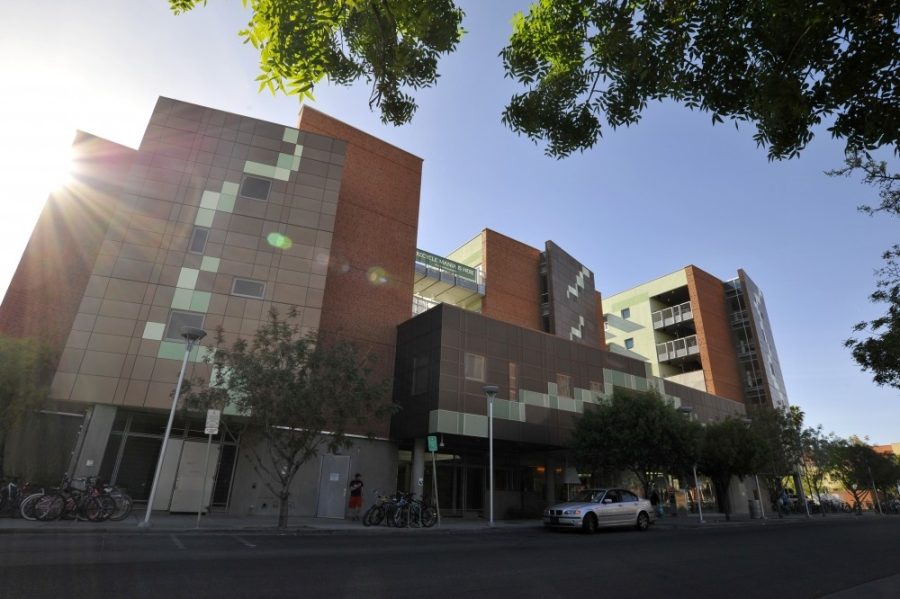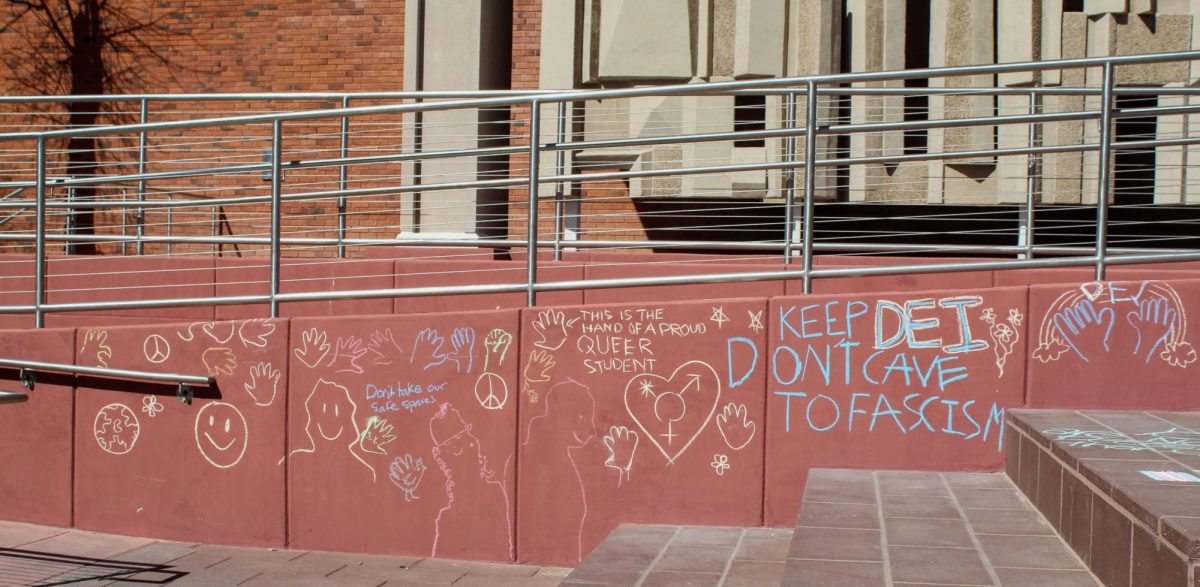*Editor’s Note: This article appeared in the Daily Wildcat’s 2017 Orientation Guide.
Throughout the past year the UA Honors College has been hosting focus groups and committee meetings to reinvent the honors experience at the UA.
After offering a small set of de-facto pilot courses during the spring semester, the college is moving forward in providing this year’s incoming honors freshman with a whole new experience.
“We have introduced a program called the Catalyst Course, which is the first course honors students will take,” said John Pollard, associate professor of practice in the departments of chemistry and biochemistry at the UA College of Science.
The seven-week course taken during freshman year will center around Bryan Stevenson’s book, “Just Mercy,” the assigned common reading book for this year.
Examining themes of incarceration, the Catalyst Course will feature a series of experiential learning projects outside the classroom alongside weekly class meetings with honor’s faculty.
Students will examine self-incarceration and the incarceration of nature in cooperation with the Biosphere and also construct poetry with the poetry center on campus.
RELATED: Community concerned about trust and credibility of UA in development of new honors complex
Aiming to enrich the first-year experience, the Honors College is “trying to create small [class size], high-quality courses for honors students that will be their general education experience,” Pollard said.
These courses will explore themes, such as diversity and time, from an interdisciplinary perspective. Students in these themed courses will come together in cross-classroom discussions to share their perspectives.
The goal is to create a more integrated and meaningful general education experience by partnering with many different departments.
“In the spring, they will then have the one unit honors colloquium courses taught by some of our best faculty across the campus,” Pollard said.
Themes for these courses vary, from examination of the science behind music therapy to the ubiquity of smartphone applications in our daily life.
The honors experience would end with a capstone project which can act as a springboard to propel students toward their post-college paths.
Pollard said his biggest takeaway from student focus groups was the idea that students want gen-eds to offer interconnected and interdisciplinary experiences.
Pollard wants students to examine nuanced and complex challenges that impact the world beyond ourselves and explore the ways an engineer, an English major and scientist can work together to solve those challenges.
Navigating many elements of today’s world increasingly requires individuals to hold and comprehend diverse perspectives. “The new experience mirrors what the world is about,” Pollard said.
Planned Honors Complex
The Arizona Board of Regents, governing body of Arizona’s state universities, signed a memorandum of understanding with American Campus Communities for the construction of an honors complex.
The off-campus village will include 1,000 dorm beds, classrooms, a parking lot, recreation and health service facilities and offices to house the entire honors staff said Elliot Cheu, interim dean of the Honors College.
The new complex compliments the proposed new curriculum and will facilitate the hiring of new staff.
“We are really looking to create a space in which collaboration—whether it is over dining or living or studying— allows the student population to really blossom in this new arena that has something for everybody,” Cheu said.
Construction is planned for three blocks bordered on north and south respectively by Adams and Mabel Streets, with Park and Santa Rita Avenues rounding out the west and east bounds, respectively.
Cheu hopes the complex will welcome students and faculty in the fall of 2019.
The UA hosted a series of community meetings on the project where they received backlash from some community members.
Cheu said the Honors College is examining ways to integrate students into the neighborhood through service projects that give back to the community and help address concerns over the project.
As part of the development planning, UA honors students were surveyed in focus groups to lend a student voice to the project.
Cheu does not foresee the new complex isolating honors students from the UA community.
“I personally think the value of the Honors College is to enhance the experience a student is already having at the university, and not replace it,” Cheu said.
RELATED: Honors college bolsters programs to help students succeed
Incoming Dean
The inaugural dean Patricia MacCorquodale stepped down late in 2016 after 23 years with the honors program.
As MacCorquodale transitioned to a faculty position within the Honors College, Elliott Cheu was named the interim dean of the Honors College.
Cheu previously served as the associate dean of the College of Science and as a professor of physics.
During the first two weeks of May, the Honors College hosted three potential candidates to fill the dean position through three individual forums and honor student discussions.
Melissa Vito, senior vice president of Student Affairs, and Neal Armstrong, associate vice president of research, who co-chaired the Search Advisory Committee for the new honors dean, informed honors students via email of the three candidates selected to visit campus: Dr. Naomi Yavneh, Dr. Terry Hunt and Dr. Sunita Kramer.
The position profile posted by the Honors College requires “a strong record of teaching, scholarship and service” of the new dean.
An applicant must have administrative experience, be an effective communicator and be committed to promoting diversity and improvement in the Honors College.
The new dean will steer the direction of the college’s new curriculum and will also help oversee the construction of a new honors complex.
An announcement is expected to be made by the end of May indicating a final selection for the position.
Follow Randall Eck on Twitter.









